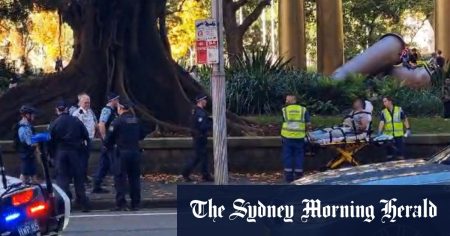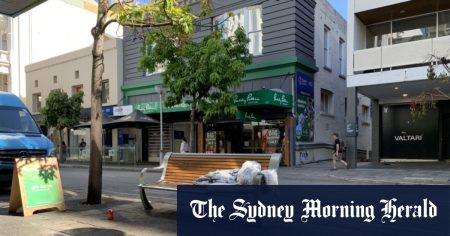Hadley expressed his frustration with Jean Nassif, the man behind troubled apartment projects in Sydney, stating that hundreds, if not thousands, of people have been financially let down by buying apartments from Nassif. The judge in a defamation case against Nassif noted that there was no medical evidence to support Nassif’s claim of a hernia repair, and that he had failed to demonstrate a lack of capacity to travel. Nassif had submitted a photograph of himself in a Lebanese hospital as proof of a medical ailment preventing his return to Australia, but the judge noted that there was no substantial evidence to support this claim.
The judge also highlighted that Nassif had little incentive to return to Australia, as there was a warrant out for his arrest, his companies were in administration, and his bank accounts were frozen. An administrator’s report estimated that the Toplace group, Nassif’s companies, had debts totaling $1.6 billion to unsecured creditors. The defamation case against Nassif had a complicated history, with Nassif paying $300,000 in security into court for legal costs after missing a deadline. The proceedings were stayed in September due to his failure to meet payment deadlines, and the case was automatically axed when he missed another deadline in March.
In February, Nassif’s lawyers indicated that they would seek a stay of proceedings pending the outcome of any criminal proceedings against him in Australia. However, the defamation case was ultimately reinstated for a shorter period of six months, with Nassif ordered to pay an additional $50,000 in security for the media parties’ costs. Comment was sought from Nine, the media company that owned 2GB and the publication involved in the defamation case. The situation highlighted the legal and financial challenges faced by Nassif and his companies, as well as the impact on those who had invested in troubled apartment projects in Sydney.
The judge’s decision in the defamation case emphasized the lack of substantial medical evidence to support Nassif’s claims, as well as the complex financial and legal issues surrounding his companies. The administrator’s report painted a bleak picture of the Toplace group’s financial situation, with significant debts to unsecured creditors. Nassif’s failure to meet payment deadlines and missed court filing deadlines further complicated the legal proceedings against him. The case highlighted the broader implications of failed apartment projects and the financial burdens faced by investors in such ventures.
Overall, the ongoing legal battles and financial struggles involving Jean Nassif and the Toplace group underscored the challenges and complexities of the real estate development industry in Sydney. The impact on investors, creditors, and legal proceedings illustrated the need for transparency, accountability, and adherence to deadlines in such cases. The judge’s decision to reinstate the defamation case for a shorter period with additional security payments reflected the gravity of the situation and the need for legal resolution. The outcome of the case could have significant implications for Nassif, his companies, and those affected by the troubled apartment projects in Sydney.















